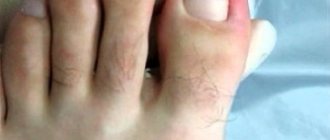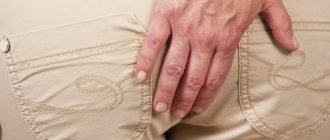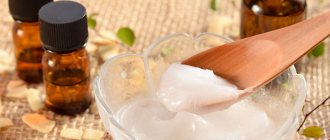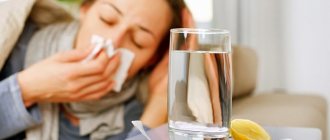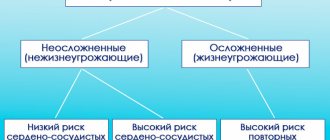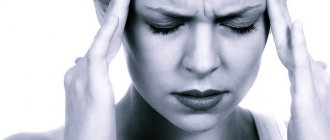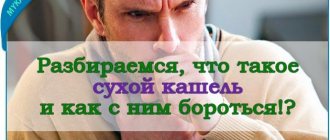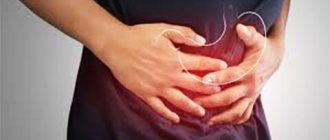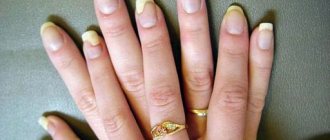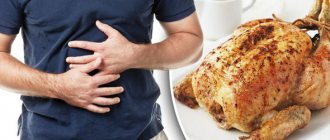Blood pressure level is the force with which blood exerts on the blood vessels as it passes through them. A blood pressure reading is a way to diagnose a person’s general health. Blood pressure can be either high or low, depending on the age norm.
An adult's blood pressure can be called low if its readings drop below 90/60. However, in individual cases this figure may vary up or down. The pressure level is measured using a manual or electronic tonometer. This device measures the level of upper and lower pressure, as well as heart rate (pulse).
Causes of low blood pressure
Physiological
It is observed in absolutely healthy people with a hereditary predisposition to hypotension, which is the individual norm. Fitness hypotension is observed in trained athletes, whose body works in “economy mode,” protecting against surges and increases in blood pressure. Compensatory hypotension occurs:
- with a sharp change in weather conditions, atmospheric pressure;
- in conditions of high humidity (for residents of the tropics, subtropics, highlands);
- due to exposure to radiation and EMR.
Pathological
- Primary hypotension
About 80% of cases of pathology are associated with neurocirculatory dystonia. Against the background of psychotraumatic situations, stress, chronic fatigue, depression and lack of sleep, the so-called neurosis of the cerebral vasomotor centers develops, a special form of which is arterial hypotension. Simply put, there is a disruption in the regulation of vascular tone in the brain. The remaining 20% is idiopathic hypotension, when the cause cannot be determined.
- Secondary hypotension
Appears against the background of other diseases: stomach ulcers, anemia, hypothyroidism, myocarditis, cardiomyopathy, heart failure, arrhythmia, dumping syndrome, osteochondrosis of the spine, oncology, infections, tuberculosis, adrenal insufficiency, liver cirrhosis, allergies, pleurisy, ascites, etc. Others reasons: hypovitaminosis B, E, C, diet with significant nutrient restrictions.
- Acute hypotension
Develops within a few minutes to hours. This dangerous condition occurs due to life-threatening conditions:
- massive blood loss, trauma
- acute cardiac dysfunction (heart attack)
- anaphylactic shock
- dehydration, poisoning
- overdose of certain medications (lowering blood pressure)
conclusions
Arterial hypotension is a rather dangerous condition that causes hypoxia of brain and heart tissue. It develops both as a result of individual congenital characteristics or lifestyle, and due to specific pathologies. Despite the fact that the condition is mostly reversible, the situation requires close attention due to possible complications.
Timely assistance with low blood pressure has a huge impact on the patient’s future prognosis. Therefore, if you have hypotension in your family, it is extremely important to know the rules of action in such cases.
There are four mechanisms for the development of hypotension
- Cardiac dysfunction, incl. myocardial infarction, overdose of hypertensive drugs - there is a decrease in blood volume (stroke and minute)
- Acute blood loss (external or internal bleeding), dehydration - reduction in circulating blood volume
- Decreased peripheral vascular tone - anaphylactic shock, poisoning, infections, autonomic disorders (see vegetative-vascular dystonia)
- Evacuation of exudate during ascites or pleurisy - reduction of venous blood flow to the heart
Which doctor should I contact?
Hypotension can have many different causes. Therefore, the first doctor who will examine, prescribe tests and give recommendations on choosing a specialist is a therapist. If you suspect problems with the heart and blood vessels, you should then go to a cardiologist.
If your hormonal levels are abnormal, your therapist will prescribe a consultation with an endocrinologist. If questions arise regarding the functioning of the kidneys and adrenal glands, the patient will be treated by a nephrologist. A neurologist will evaluate the autonomic function of the nervous system.
Symptoms of arterial hypotension
Physiological hypotension is asymptomatic, see symptoms and treatment of low blood pressure.
Acute hypotension | Primary hypotension | Secondary hypotension |
occurs with symptoms of oxygen starvation of the brain:
| occurs with vegetative crises of a vagoinsular nature:
| In addition to the symptoms of the underlying disease, the following appears:
|
The following symptoms of low blood pressure are also characteristic:
- restless, interrupted sleep
- weakness and fatigue even after a long sleep
- depression, fear, internal tension
- feeling of lack of air
- fatigue during normal activities
- loss of appetite
- frequent constipation
- pale skin
- prolonged, dull and aching pain in the heart that is not relieved by nitroglycerin
- headache in the temples and forehead after sleep, work, when the weather changes
Disease prognosis
Treatment of hypotension is a complex, lengthy process and requires joint efforts of the patient and the doctor. This disease worsens the quality of life, but in the vast majority of cases it does not threaten it. Manifestations of hypotension in childhood often disappear with adulthood.
Persistent primary hypotension, often hereditary, with pronounced symptoms is difficult to correct. In some cases, this condition develops into the opposite phenomenon - hypertension, which is poorly corrected with medications. Therefore, such patients need to constantly monitor their condition.
Diagnosis of arterial hypotension
Diagnosis of hypotension is based on assessing blood pressure levels. To correctly interpret blood pressure readings, it is necessary to take three measurements with an interval of 3-5 minutes. Daily blood pressure monitoring allows you to determine fluctuations in pressure values.
In addition, to exclude secondary hypotension, a comprehensive examination of the cardiovascular system, endocrine and nervous systems is carried out, for which a consultation with specialized specialists is carried out and a number of studies are prescribed:
- blood chemistry
- Echocardiography
- Encephalography
- ECG
- orthostatic test, etc.
Midodrine
Analogs of the drug: midramine, alfamin, gutron. The pharmacological action of midodrine is similar to adrenaline-like sympathomimetics, such as fethanol and mesaton. The drug excites alpha-adrenergic receptors of arterioles and causes their narrowing, while not activating beta-receptors of the heart and bronchi, which eliminates the occurrence of side effects (tachycardia, bronchospasm, suffocation).
Midodrine is prescribed for autonomic disorders with low blood pressure, orthostatic conditions (decrease in blood pressure when changing body), secondary hypotension (due to drug treatment, infections, injuries) and hypotension of unknown causes.
Low blood pressure treatment
- Physiological hypotension does not require therapeutic measures, since it does not interfere with the quality of life and does not lead to pathological changes in the body.
- Primary hypotension - all therapeutic measures are aimed at correcting autonomic imbalance.
- Secondary hypotension, as a symptom of the underlying disease, requires treatment of the nosological pathology.
- Acute hypotension - depending on the reasons that caused it, is urgently corrected in intensive care conditions by administering vasoconstrictors and cardiotonics (mesaton, dopamine), glucocorticoids, saline and colloid solutions.
If you have symptoms of acute hypotension, you should immediately call an ambulance.
Dopamine
Analogs of the drug: aprikal, dopamine, dophan, reviven.
Dopamine excites dopaminergic receptors in the vessels of the peripheral circulatory network, which leads to their narrowing and increased blood pressure. The drug reduces renal vascular resistance and increases renal filtration.
Dopamine is used for acute heart failure and various types of shock (toxic, traumatic, cardiogenic, hypovolemic).
Drug treatment, main groups of drugs
- Tinctures of lemongrass, ginseng, aralia, hawthorn, and eleutherococcus are adaptogens of plant origin that tonic blood vessels and gently stimulate the central nervous system. Eliminate fatigue, both physical and mental, as well as failures of the processes of inhibition and excitation in the central nervous system.
- Piracetam, Glycine, Noofen, Nootropil, Pantogam are nootropics that increase the resistance of the central nervous system to various aggressive influences, eliminate lethargy, depression and improve memory:
- Belloid, Bellaspon, Ballataminal are anticholinergics that eliminate severe vagotonia.
- Vinpocetine, Cinnarizine, Actovegin, Gingko biloba are cerebroprotectors that improve cerebral hemodynamics and have a neurometabolic effect.
- Succinic and citric acid, Ubiquinone are antioxidants that increase the energy supply of cells:
- Vitamins A, E, B, which have a neurotrophic, metabolic effect and have a positive effect on vascular homeostasis (see vitamins in tablets - benefits and harm).
- Grandaxin, Trioxazin are tranquilizers with an activating effect, eliminating anxiety, fear, and relieving emotional stress (see antidepressants and tranquilizers).
- Caffeine, drugs that increase blood pressure based on caffeine: Adolorin, Asco-fen-P, Algon, Acepar, Pentalgin, Sedal-M, Saridon, Trimol, Citramon P, Citrapar, Caffeine sodium benzoate, Excedri.
- Midodrine, Gutron are central nervous system stimulants that increase vascular tone, eliminate venous congestion and increase peripheral vascular resistance.
- Paracetamol, Ibuprofen are non-steroidal anti-inflammatory drugs that relieve headaches.
The therapeutic regimen of medications is always selected individually, taking into account the patient's status and concomitant pathology (see medications for low blood pressure). The goal of therapy is to adapt the body to normal existence in conditions of hypotension, to eliminate dysfunction of the autonomic system, but in no way doom the person to lifelong medication in increasing doses.
Fethanol
Analogues of the drug: Circulan, etilephrine, pressoton, etiphylline. Fentanol belongs to the pharmacological group of alpha-adrenergic agonists. Increases blood pressure by stimulating alpha receptors in small arteries (arterioles), which leads to narrowing of the lumen of blood vessels and increased blood pressure. Prescribed for the treatment of acute vascular insufficiency and shock, normalization of blood pressure in chronic arterial hypotension.
The drug mezaton is used for injection, which has a similar mechanism of action, but a stronger and short-term effect, and is prescribed to relieve acute conditions.
Non-drug treatment
- Exercise therapy with individual selection of exercises that do not require much physical activity - Bodyflex, gymnastics, fast walking, jogging, etc.
- Aeroionotherapy – inhalation of ozone-enriched air. Stabilizes blood pressure, improves microcirculation.
- Electrosleep with individual selection of pulse frequency increases vascular tone.
- Electrophoresis on the cervical-collar area with solutions of caffeine, mesatone - eliminates dizziness and fainting (more about the indications and contraindications of electrophoresis).
- Acupuncture, leading to the normalization of neurovegetative interactions and improving blood microcirculation.
- Aromatherapy massage using tonic and stimulating oils: anise, orange, basil, clove.
- Hydrotherapy, which has a tonic effect on vascular tone, the prescription apparatus of the skin and has a positive effect on the immune system: Vichy shower, Scottish, fan, circular shower, mineral, radon, iodine-bromine baths, hydromassage, the use of contrasting temperatures.
- Massage of the calf muscles, hands, and neck-collar area, eliminating headaches, heart pain, and emotional lability.
- Autogenic training, meditation, etc. Psychotherapeutic techniques make it possible to change the attitude towards psycho-emotional factors of traumatic action and increase tolerance to them.
- Soft hardening – contrast shower, cool foot baths
- Quitting bad habits: smoking and alcohol
- Elimination of stress and psychological trauma
Normalization of nutrition
Includes frequent meals with enough protein, salt and spices. The sodium in salt binds water, thereby increasing the total volume of circulating blood. Spices stimulate the work of the endocrine glands and constrict blood vessels. It is recommended to drink natural ground coffee or strong tea (see the dangers of tea bags) in the morning, but you should not abuse it, since a pathological reaction of blood vessels may develop in the form of dilation instead of narrowing, which means an even greater drop in blood pressure. Products that increase blood pressure:
- hot and spicy dishes
- spices (cloves, pepper, horseradish, mustard)
- cheese, fatty meats and fish
- sweets, chocolate
Normalization of daily routine and lifestyle
A particularly important point for representatives of sedentary professions, which includes:
- 9-11 hours of sleep at night, during which the body’s biorhythms can be synchronized
- smooth getting out of bed without sudden movements
- morning exercises
- cold and hot shower
- swimming, gymnastics
- walks in the open air
- breaks during the working day for 5-10 minute rest
Application
Arterial hypotension is a decrease in blood pressure by more than 20% of normal levels (below 90/60 mm Hg). The condition can be acute or chronic.1 In the first case, the patient needs to take a short-term course of medication to normalize blood pressure; in the second, the treatment is long-term and involves regular use of medications prescribed by a doctor.
The fact that you need to use drugs to increase blood pressure can be understood by the symptoms:
- frequent dizziness;
- weakness;
- increased sweating;
- pale skin;
- nausea, predisposition to motion sickness;
- apathy;
- sensitivity to sharply changing weather conditions.
The instructions for use of most drugs that normalize blood pressure indicate that they help against tachycardia. Therefore, cardiologists often include them as part of complex therapy for this disease.
Traditional methods of treatment
How to increase blood pressure at home? You can use various herbal infusions, but you should remember that medicinal plants, like medications, have side effects and have a number of contraindications, and can cause allergic reactions.
Infusion of immortelle
|
Radiola rosea tincture
|
Infusion of prickly tartar
|
Decoction of a mixture of herbs
|
Coffee-honey mixture
|
Kombucha infusion based on black tea
|
Celery leaves and roots
|
Raw beet juice
|
Rantorin, pantocrine
These are medicines of natural origin. Rantorin is an extract from reindeer antlers, pantocrine is an extract from sika deer (deer). The drugs increase blood pressure by stimulating the sympathetic nervous system and activating heart function. The hypertensive effect is combined with an increase in the body's adaptation: performance, resistance to stress, physical activity, and colds.
Rantorin and pantocrine are used for arterial hypotension, neuroses, asthenia after serious illnesses, fatigue, increased mental and physical stress.
Non-specific techniques
It happens that the pressure drops quite sharply, and you feel an approaching fainting. To avoid injury, you should:
- Sit on the floor or lie on the bed
- Legs should be raised and head slightly lowered
- Next, rub your earlobes vigorously until they turn red.
- If the condition improves, you can lie down so that your head hangs down slightly
- After an attack, you should eat or drink sweet tea
Every person suffering from hypotension must understand that only a comprehensive, consistent, individually tailored approach to the treatment of the disease with its multiple organ symptoms will control the course of hypotension, stop its progression and improve the quality of life!
Author:
Sabuk Tatyana Leonidovna hygienist, epidemiologist
Question answer
Is it possible to take Citramon?
Yes. The drug helps normalize blood pressure due to the presence of caffeine. The combined remedy not only increases low blood pressure, but also eliminates headaches and, if necessary, lowers the temperature.
Can I take Andipal?
No. The medicine is an antihypertensive drug and can aggravate hypotensive symptoms and lead to disturbances in brain function.
Piracetam helps to safely increase blood pressure in older people
Alcohol tinctures of ginseng root, eleutherococcus, and valerian also help to raise blood pressure. A decoction of hawthorn and wormwood and an infusion of St. John's wort have a tonic effect.
When using alcohol tinctures for hypotension, older people should remember that such medications are contraindicated in cases of severe arrhythmia and arterial sclerosis.

